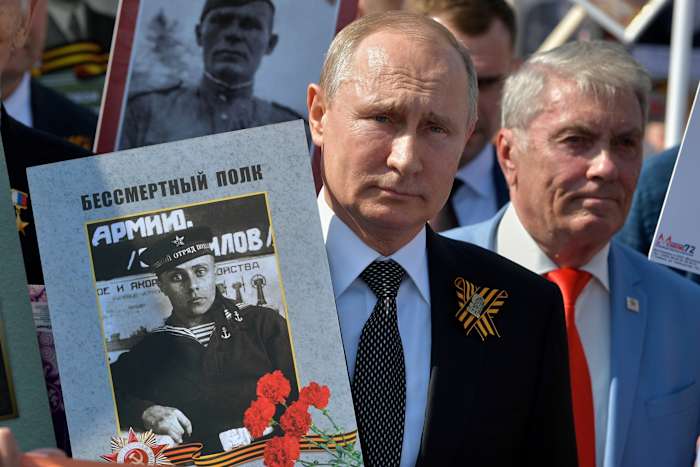How Putin Leverages the USSRs WWII Victory to Gain Support for His Leadership and the Ukraine Conflict
3 minute readPublished: Thursday, May 8, 2025 at 5:11 am

Putin's Victory Day: A Tool for Power and the Ukraine Conflict
Russia's annual Victory Day celebration, commemorating the Soviet Union's triumph over Nazi Germany in World War II, is more than just a historical remembrance. It's a powerful tool President Vladimir Putin uses to bolster his leadership, rally national support, and justify the ongoing invasion of Ukraine. This year's celebrations, marked on May 9th, were particularly significant, coinciding with the third year of the conflict and attempts to showcase Russia's global influence.
The article highlights the immense sacrifice of the Soviet people during the "Great Patriotic War," with 27 million lives lost. Putin frequently invokes this history, drawing on personal family stories and emphasizing the Red Army's crucial role in defeating Nazism. He uses this narrative to foster national pride and portray Russia as a global power, especially in the face of Western isolation efforts.
The Kremlin leverages Victory Day parades, featuring displays of military might, including nuclear-capable missiles, to project strength. Furthermore, Putin has used the historical context of WWII to justify the invasion of Ukraine, falsely claiming the need to "denazify" the country. This narrative, which has been widely refuted, casts Ukraine's leaders as Nazis and frames the conflict as a continuation of the fight against fascism.
However, this year's celebrations were somewhat overshadowed by events. Reports of Ukrainian drone attacks targeting Moscow and disruptions at the capital's airports, as well as cellphone internet outages, may have dampened the festivities. Despite these challenges, Putin continues to use Victory Day as a cornerstone of his political strategy, weaving historical narratives to legitimize his actions and maintain control.
BNN's Perspective: While it's understandable that Russia would commemorate such a significant historical event, the blatant manipulation of this history to justify a brutal war is deeply concerning. It's a dangerous tactic to exploit national pride and historical memory for political gain, especially when it involves distorting facts and demonizing a neighboring country. A moderate approach would recognize the importance of remembering the sacrifices of WWII while condemning the misuse of history to fuel aggression.
Keywords: Victory Day, Vladimir Putin, Russia, World War II, Ukraine conflict, Nazi Germany, Soviet Union, Great Patriotic War, Red Army, Kremlin, invasion, denazification, national pride, military parade, historical narrative, Stepan Bandera, geopolitical strategy.